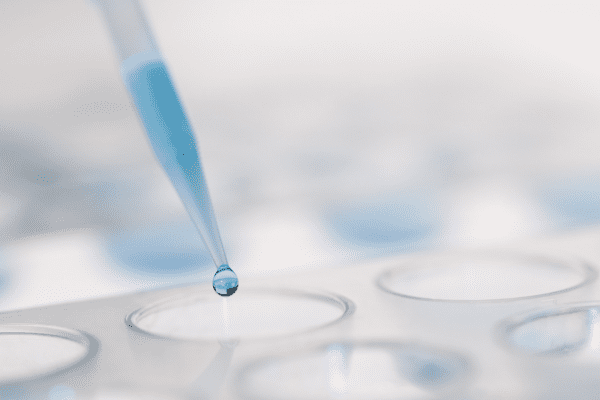The fascinating research on hookworms focusses on how parasitic hookworms that live the human intestine may hold the key for controlling inflammation and improving gluten tolerance in people with coeliac disease.
These parasites can live in the gut, the very environment affected by coeliac disease, and to survive for years in their human host they have evolved to suppress the human immune system. By unravelling the interactions between hookworms and the immune system, we aim to discover new
approaches for treating inflammatory conditions, such as coeliac disease, where the intestinal immune system overreacts to harmless stimuli, like gluten.
While the most recent clinical trial involving hookworm treatment in coeliac disease didn’t find a ‘cure’, it did show that the majority of people treated with hookworms actually experienced less symptoms and improved quality of life scores when challenged with small amounts of gluten.
The current part of the project involves analysing tissue samples collected during the initial trial. Using advanced gene sequencing techniques, specific biological pathways stimulated by the worms in the gut and blood have been identified. Of particular interest is the changes in immune markers and gut bacteria in individuals who responded positively to hookworm infection (those who developed improved gluten tolerance).
By gaining insights into immune pathways or species of beneficial gut bacteria linked to improved gluten tolerance in coeliac disease, we can devise new strategies for targeting these protective immune responses in future studies. For example, not everyone may be comfortable with live hookworm infection as a treatment! Thus, finding alternative, more conventional ways to achieve the same protective benefits, like using a purified hookworm protein or a probiotic bacteria, could be more acceptable to the coeliac community.
Data analysis is currently ongoing and has provided opportunity for international collaboration, leveraging the expertise of those with world-leading expertise in the latest immunology, microbiome profiling and microscopic imaging techniques. The results will be shared as soon as they are available.
Meet the researcher – Paul Giacomin


Dr Paul Giacomin, Senior Research Fellow at the Australian Institute of Tropical Health and Medicine at James Cook University, believes his research background in immunology has profoundly shaped his approach to understanding coeliac disease.
His fascination with the immune system’s dual role—defending against infections while tolerating everyday exposures like food—has guided his career path. This interest intensified as he studied how parasitic worms ingeniously suppress the immune system to survive within the gut’s hostile environment. These discoveries not only expanded his scientific understanding but also sparked a curiosity about the broader implications for autoimmune diseases.
Beyond the lab, Paul’s passion is driven by a commitment to change the lives of those affected by coeliac disease. He’s motivated by the potential to ease the burden of a lifelong gluten-free diet, exploring nature’s own strategies for immune regulation. His research is not just a professional endeavour but a personal quest to unlock new, transformative treatments that offer hope and improved quality of life for patients.






